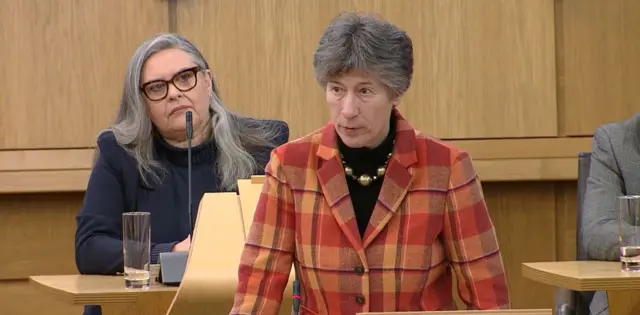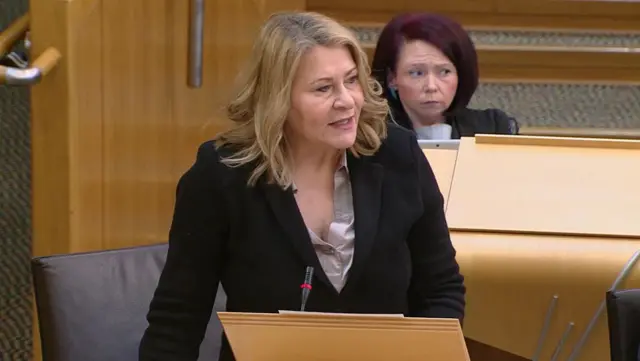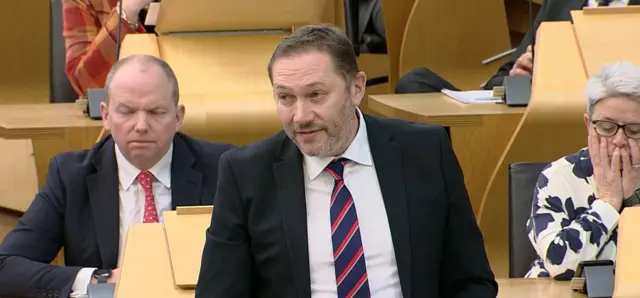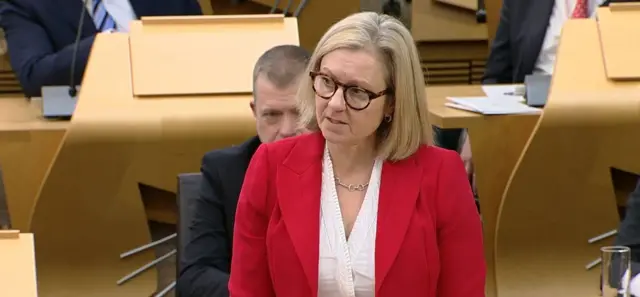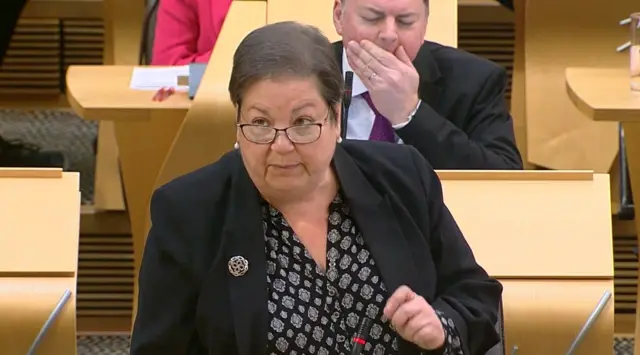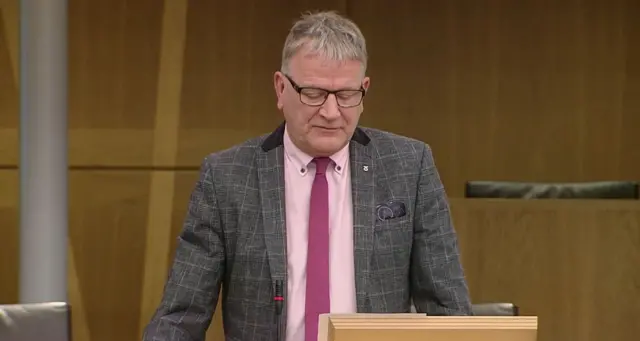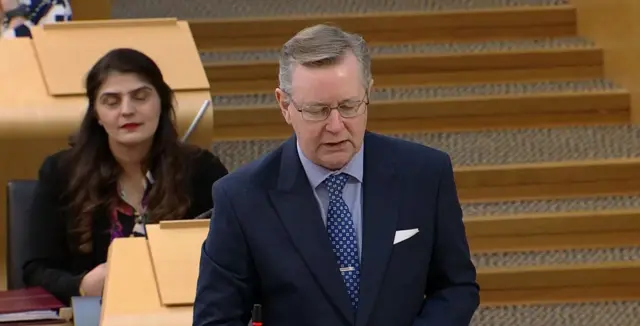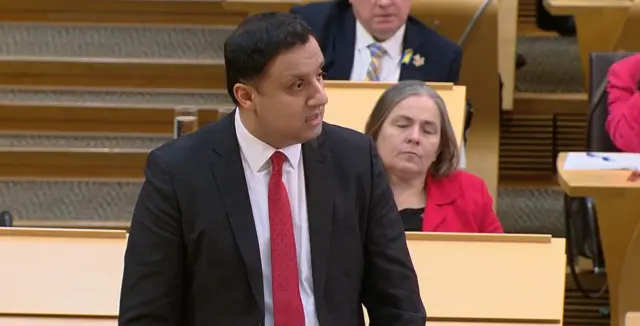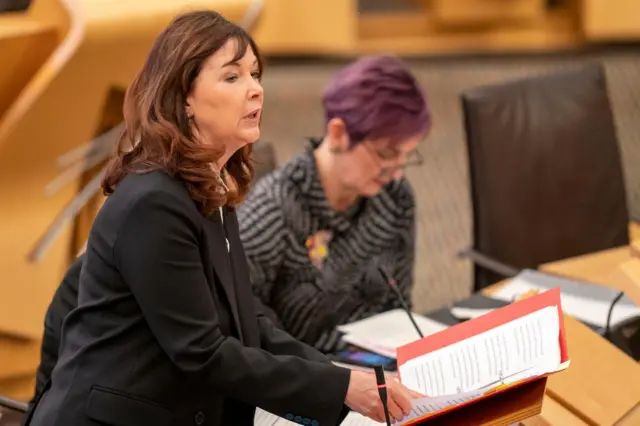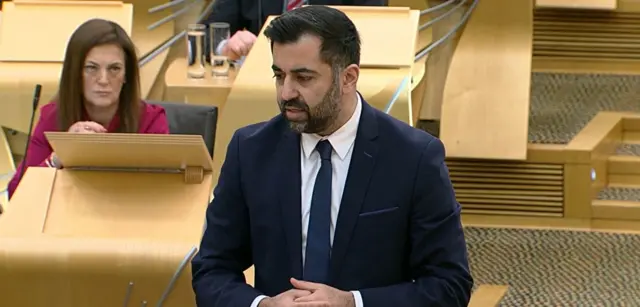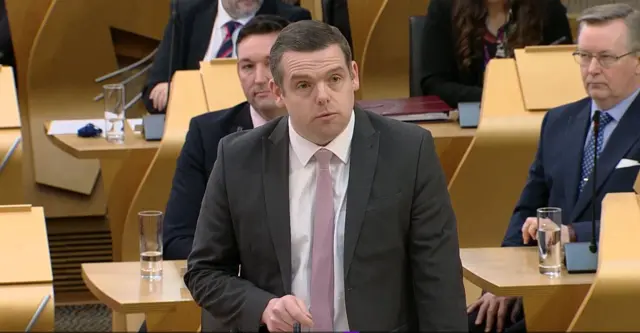FMQs: The headlinespublished at 13:17 GMT 18 January 2024
Our live coverage of FMQs comes to a close. Here are the headlines from today's session:
- The FM was asked for clarity on "blanket exoneration" for victims the Post Office scandal, after the lord advocate told MSPs that convictions might have to be considered individually.
- Humza Yousaf said it was his preference that UK-wide legislation be used to clear convicted postmasters and postmistresses, and said he had received a "positive" letter from Rishi Sunak.
- Yousaf denied being forced by the media into announcing new measures on dangerous dogs. He said he was forced to act after reports that XL Bully dogs were coming over the border, but the best approach was "deed not breed". A statement on new legislation is expected later.
- Asked about poor cancer survival rates Yousaf said a 10-year plan had been drawn up to improve treatments, although he accepted that for some types of cancer more work was needed.
- Labour's Jackie Baillie said women were facing a "life threatening postcode lottery" for cancer surgery, with some using life savings to pay for treatment.
- Asked whether he backed a new UK food labelling scheme on quality and welfare standards, the FM said this was a "Brexit burden" which would add costs for businesses.
- Yousaf insisted the rollout of superfast broadband was "on track" despite Conservative claims it was way behind targets, particularly in the north.
- The FM said it was his intention that a public inquiry into disgraced brain surgeon Sam Eljamel begin this year and he believed a chairperson would be appointed "shortly".
That's it from FMQs today. The editor this week was Paul Hastie. The writers were Calum Watson and Craig Williams.


